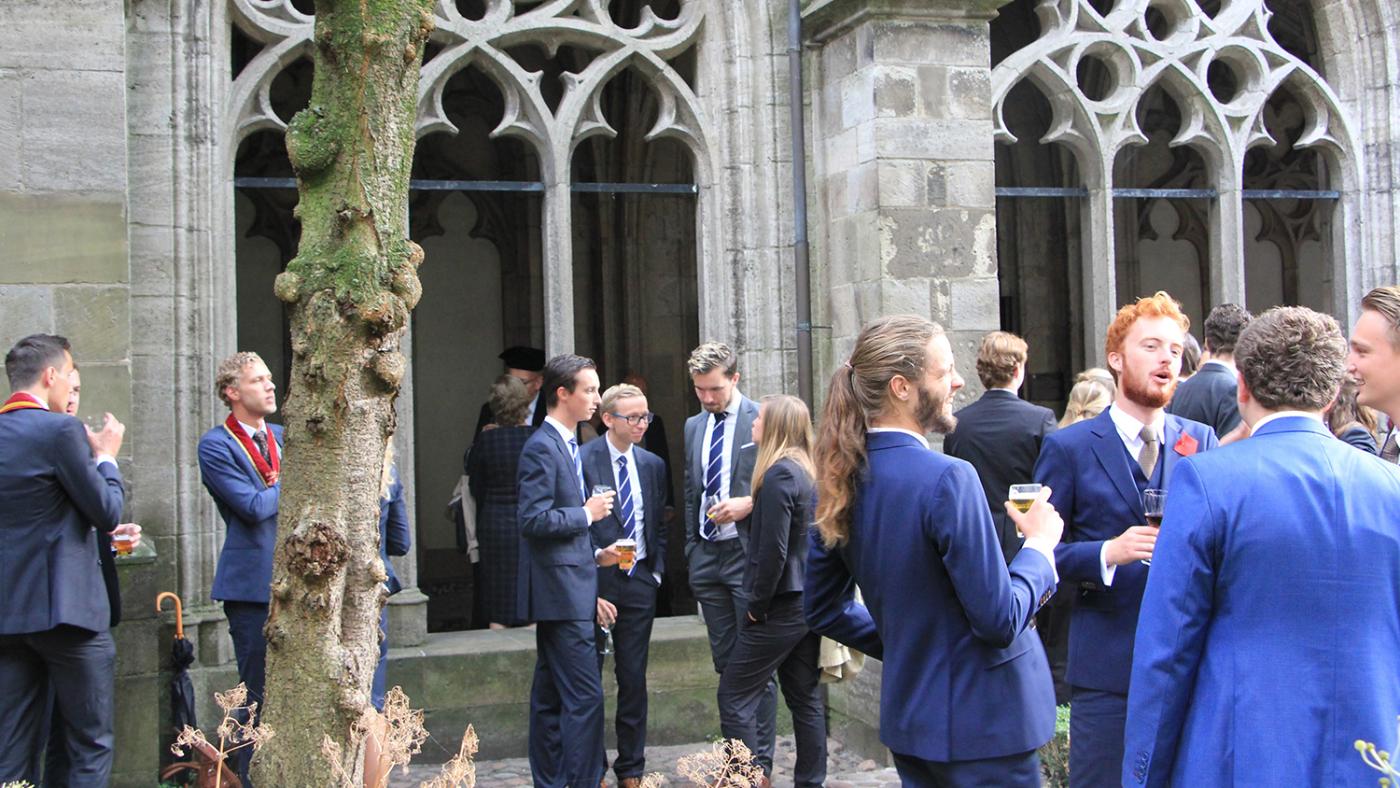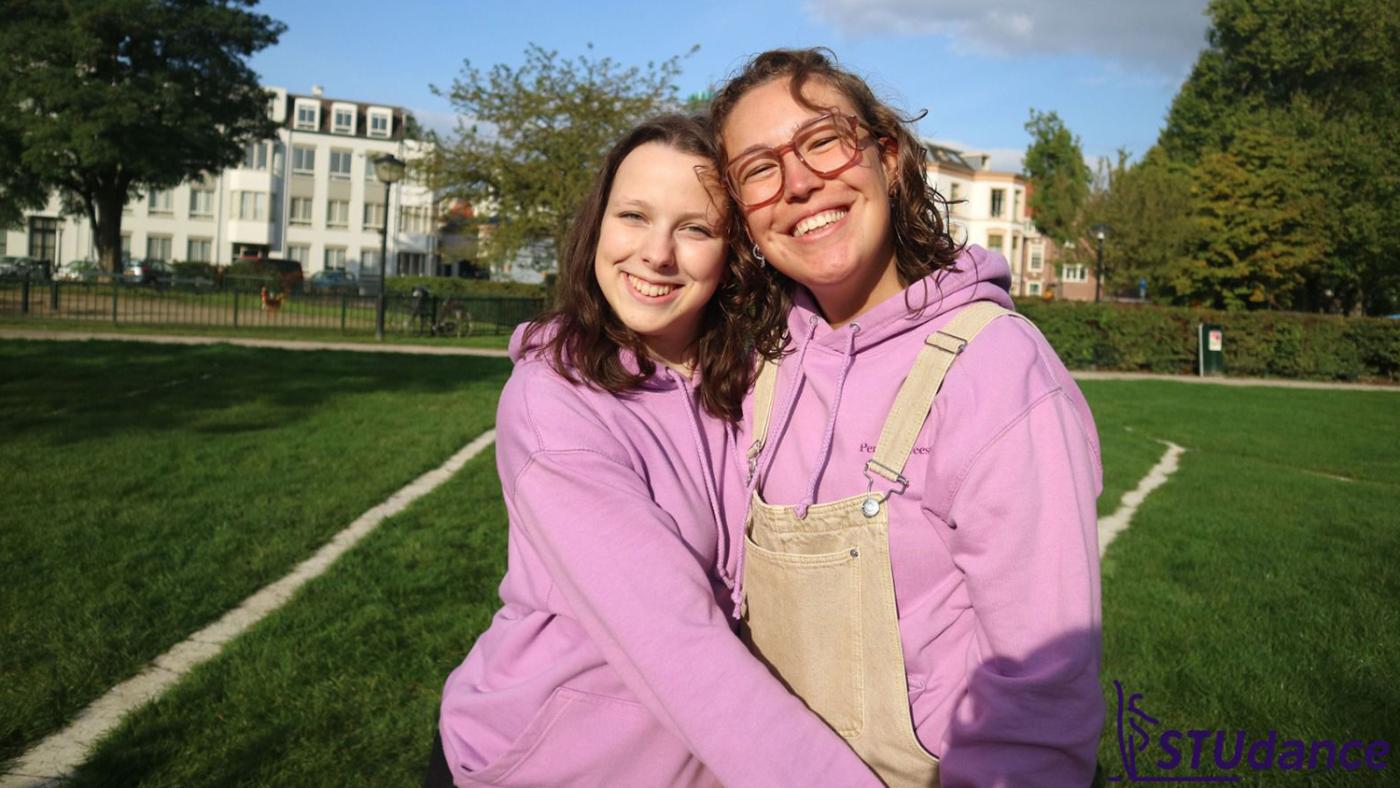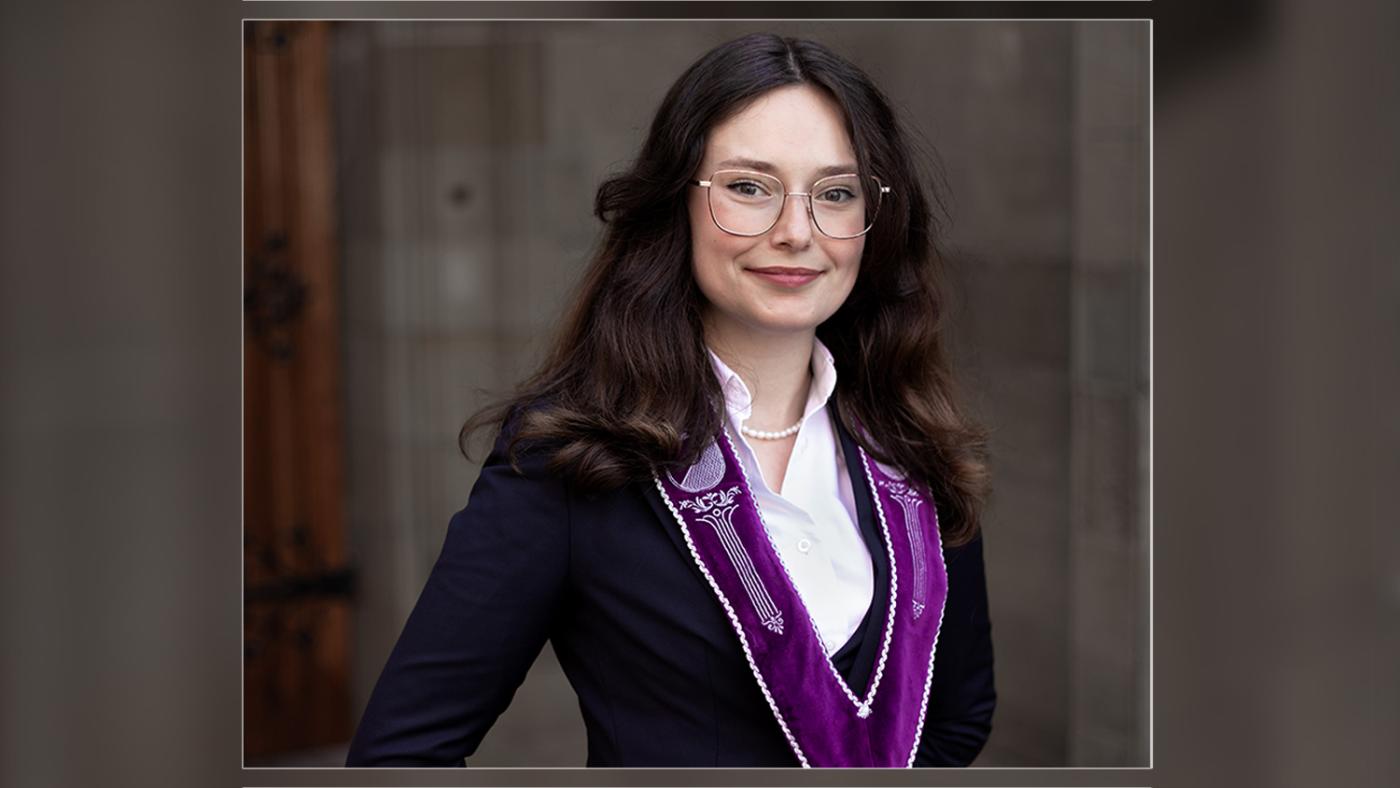Students who served on boards share their experiences
'It isn't as attractive to join an associaton board anymore'

A board position, a part-time job and no time for studying. That was the life of Marijn van Andel (22), the treasurer of the History study association, Vugs, last academic year. ‘I would be at Vugs during the week and work at weekends. I hardly saw any of my friends and family!’
Milou van Rijn (22), a student of Educational Sciences, can relate. Being a student administrator is quite demanding; you have to sacrifice a lot. Your studies and social life really suffer during your year on the board,’ she says. Last year, she served as secretary for the board of the student dance association STUdance, a position also held by Rikke van Wijngaarden (27), Dance Commissioner and a former student of Communication Sciences.
Marijn, Rikke and Milou all qualify the year they served on a board as intense, as does Ashley Thijssing (23), who was a PR officer for UHSK, the study association for History. She felt even more under pressure than most because she couldn't find a room and had to commute between her home in Amersfoort and Utrecht. ‘I was hardly ever at home and constantly lugging my stuff around. I wasn't getting enough sleep, and my eating habits deteriorated.’

The student administrator Merijn van Andel. Photo: courtesy of the student
Successors can be difficult to find
September and October are the months when student board members step down and make way for new students who want to devote a year to an association. However, all the stories about how hard it is to combine a year on the board with a part-time job (and, in some people's cases, studies) affect their ability to find those successors, according to Tim Pijnenburg (21), who serves as an assessor for external affairs at the international student association Aegee.
‘So many people say that a board year is tough. As a result, people may not view boards in such a positive light anymore,' says Tim, who studies Interdisciplinary Social Sciences. He understands the dissatisfaction. ‘You get a degree for your studies and money at your job, but what you get out of a board year is less tangible.’

The student administrators Milou van Rijn (left) and Rikke van Wijngaarden. Photo: courtesy of the students
Pressure to graduate quickly
This is noticeable in several student organisations. Take Aegee, for example. Only four of the six board positions were filled this year. ‘They're going to be a lot busier than we are,’ concludes Tim.
The Utrecht student union Vidius was also unable to fill its board, confirms its newly appointed treasurer, the Philosophy student Philip Sokolov (26). Ideally, Vidius' board should consist of six students, but only four were willing to do the work this year. That is one more person than the board Philip was on. Yes, three students had to do the work of six. However, none of the four students on the current board can work full-time.
According to Philip, that's because they would struggle to make ends meet without a part-time job. But this is not the only difficulty: ‘It's hard to find a room in Utrecht and there is increased pressure to graduate quickly.’

The student administrator, Ashley Thijssing. Photo: courtesy of the student
More money
According to Philip, the solution is simple: 'The university should increase the board grant!' Not only would this reduce students' financial stress, but it would also make the workload more bearable. After all, students would not have to divide their energy between studying, a part-time job and the board. Philip thinks this measure could even 'make it easier to find a room'.
Tim van Aegee also believes that increasing the board grant makes sense. "At the Opening of the Academic Year, Utrecht University boasted about its many student organisations, which means that everyone can find a club where they feel at home. However, the Executive Board seems to forget that board work must remain attractive if they don't want associations to collapse. UU needs to be more aware of the pressure board members are under.'
Ashley, from UHSK, also sees the merits of increasing the grant. ‘If we want to motivate students to serve on a board for a year, the university has to help. Student administrators do a great deal of work for the university, and that work is often underestimated. If we don't do our work well during the introduction week, for example, this has a direct impact on the History community.’

The student administrator, Tim Pijnenburg. Photo: courtesy of the student
In conversation
STUdance has also noticed an increase in awareness. Last year, Rikke and Milou were disappointed in the late stage at which the student sports association was allowed to have a say in the relocation of Pnyx, the building where dozens of student boards had their offices.
‘When we were finally allowed to join the discussion thanks to Vidius's efforts, the Executive Board was surprised by some of our activities,’ says Rikke. For example, the UU administration had not taken into account that student administrators work with a significant amount of personal data, which cannot be discussed in public, and flexible workspaces that the university was planning to provide to the associations.
‘The same thing happened at Olympos, where a new registration system caused a lot of problems that we could have seen coming a long time ago,’ Milou explains. ‘Sometimes people forget how much knowledge we have. It's not that we just want to interfere, we also have a lot of knowledge and experience.’

The student administrator Philip Sokolov. Photo: courtesy of the student
‘Invite us and come visit us!’
Associations are more than willing to share that knowledge. Marijn, from Vugs, calls on university administrators to “just drop by the association rooms! We usually have to make the first move, but if they come by, they will see for themselves what we contribute. The number of study associations here in Utrecht is unique, so let us cherish that!'
He also hopes that UU would be more ‘solution-oriented’ in its thinking. ‘We used to organise trips abroad, and the students who went along were given a few extra days off so that they could participate. From this year onwards, we will no longer get that exemption, which forced us to shorten our excursion. Students were not given an exemption for a national symposium we organised, either.’
According to Ashley, the History programme feels differently. The programme itself is excited about the activities organised by UHSK. ‘Except when it comes to money. For example, we wanted to publish a book commemorating our 100th anniversary, and we requested funding for that purpose. Unfortunately, the programme was unable to contribute.’
Philip, from Vidius, also feels that the Executive Board listens to him and takes him seriously. ‘UU tries to do what it can, within the scope of what is possible,’ he says, based on his experience. He cites consultations about the quality of life at Utrecht Science Park as an example.
Still highly recommended
Weighing up all the positive and negative experiences, the students would all recommend dedicating a year to a board. ‘You get a lot in return,’ says Rikke. Tim agrees, saying that his year on the board was special. 'It's an experience you can't get anywhere else. Yes, you are thrown in at the deep end. You've got to learn a lot of things, and you are given a lot of responsibilities that you have to learn to deal with.'
Several associations have successfully filled all their board positions for the upcoming year, including STUdance, UHSK and Vugs. How did they do it? The social geographers have many active members. ‘We are also seeing a slight decline in numbers, but our trips are filling up just as quickly as ever,’ says Marijn.
According to him, this is due to his study association successfully demonstrating what Vugs is about during the introduction week. ‘I had already decided to serve on the board during introduction week. I felt that it was so enjoyable here; I received such a warm welcome.’
Ashley also experienced this enthusiasm at her study association. Even though she didn't live in Utrecht, she wouldn't advise anyone against doing a board year. ‘You've got to let yourself get carried away a little, because it can be a lot of fun and very educational. So, just do it!’
Comments
We appreciate relevant and respectful responses. Responding to DUB can be done by logging into the site. You can do so by creating a DUB account or by using your Solis ID. Comments that do not comply with our game rules will be deleted. Please read our response policy before responding.